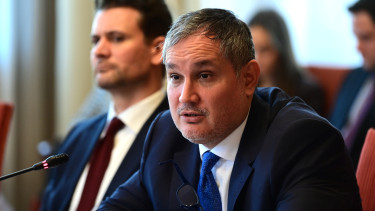WHO: second wave of coronavirus "very real risk" as restrictions are lifted

Stringent public health measures have helped stem the transmission of the coronavirus, but there’s “every chance” of a resurgence as economies reopen, the chief scientist of the World Health Organization warned Tuesday.
We don’t know if it will be a second wave, a second peak or a continuing first wave in some countries, it (the infection rate) really hasn’t come down that much at the time of reopening and so all of these possibilities are very real
, Dr. Soumya Swaminathan told CNBC’s “Street Signs Asia.”
She said a second wave of infection is “a very real risk” as the virus is still present in the community. Extreme social distancing or lockdowns have so far helped blunt the transmission of the disease because people were kept apart.
“Now, the moment you start having that mixing again, there’s every chance that the transmission could restart — unless it’s gone down to such a low level in a place where it’s very, very rare to have the infection in the community,” she said.
That makes it important to have a cautious and “staggered” reopening of economies, she said, adding that governments need to observe the virus’ behavior as more people start to mingle again.
What we’ve been saying repeatedly is that we cannot be complacent, this virus is a nasty virus and what it needs is people to be in close contact
, Swaminathan said.
“So especially in many countries around the world, where it is impossible to have physical distancing, it is really important that people remain vigilant.”
Furthermore, those who are more vulnerable — such as the elderly, people with weak immune systems and those with underlying illnesses, like diabetes and high blood pressure — are likely to get sicker if they are infected with the virus, she said.
People who are more susceptible would need to practice extra care when taking precautions, including not going to crowded areas, wearing a medical mask whenever they go outside and making sure their underlying diseases are “under control,” she said.
More than 7 million people globally have been reported to be infected with Covid-19, which has killed over 400,000 people worldwide, according to data tallied by Johns Hopkins University.
Asymptomatic cases of transmission (people who test positive for Covid-19 but do not exhibit any symptoms of the disease) cannot be completely ruled out even though they do not appear to be the ones spreading the disease most aggressively, Swaminathan said.
The United Nations health agency initially said on Monday that cases of asymptomatic people spreading the coronavirus are “very rare.” However, the WHO later walked back on its comments, clarifying that much about asymptomatic spread was still unknown.
Dr. Mike Ryan, executive director of the WHO’s emergencies program, said late on Tuesday that while asymptomatic spread of the virus does happen, the portion of asymptomatic individuals who pass the virus to others remains a “big open question.”
Until an effective and safe vaccine emerges, there would be a need to live with and manage this virus for the “next couple of years,” Swaminathan said.
Despite numerous vaccines currently being developed, we would be “very lucky” to have results from trials by the end of this year, and a vaccine available by the beginning of next year, she noted.
After that, it would take another year or two for the mass production of billions of vaccine doses in order to inoculate enough of the world’s population to attain herd immunity, she explained.
Herd immunity refers to the situation whereby sufficient people in a population have become immune to a disease, such that it effectively stops the disease from spreading.
Swaminathan previously warned that it could take up to four or five years to get the coronavirus pandemic under control.
Cover photo: Getty Images







